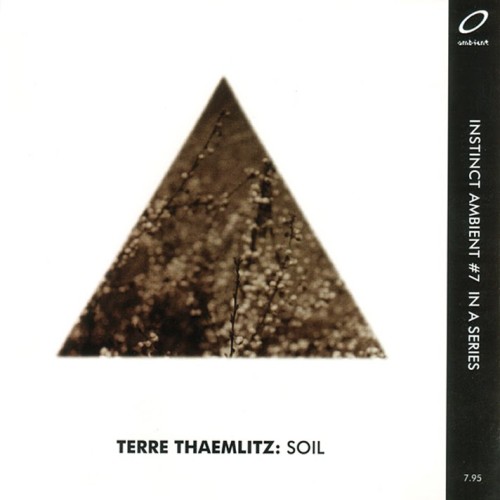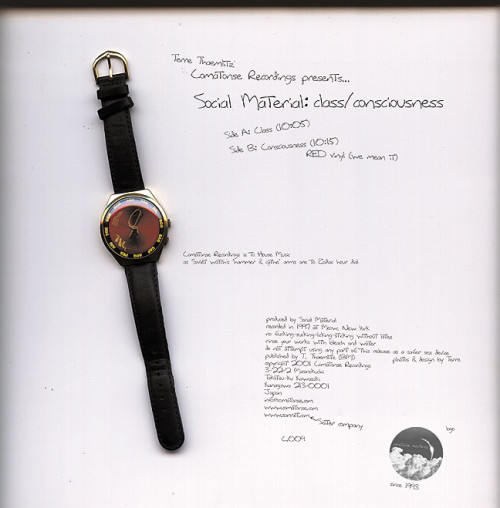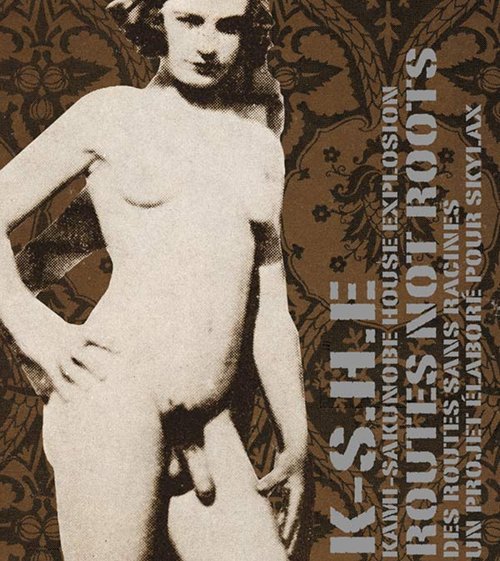|
press プレス |
|
The Essential... Terre Thaemlitz - Anonymous |
In FACT (UK), January 30 2014.
Deep house idol, queer theorist, media manipulator, seasoned contrarian - Terre Thaemlitz (alias DJ Sprinkles) operates in a field of one.
There are parallels with artists like Theo Parrish or John Maus, who use the medium to throw political punches (the former) or test the vernacular (the latter) - but the political rigour of Thaemlitz's work is pretty much unparalleled in contemporary dance music. Don't call her an artist, or a musician - she's a "media producer", who just happens to have some of the most critically feted deep house records of recent times under her belt. Albums designed to illuminate labour exploitation; heaters that swap hooks for monologues about abuse in the transgender community; Arthur Scargill-sampling club trax - these are records as weapons.
Raised in Missouri, Thamelitz came up (and out) in the 1980s, a period when disco and dance music were still explicitly hot-wired to queer culture (something her music carefully plots and preserves). Her musical life began spinning New Jersey and New York deep house in Manhattan's transsexual clubs - gigs she was fired from more than once for refusing to play chart-bothering diva house fodder. Shaped by an fine art degree and a parallel immersion in left-wing activism, her official recorded output started to appear in the early 1990s.
Since then, Thaemlitz's established a mosaic of outlets - DJ Sprinkles, K-SHE and Terre's Neu Wuss Fusion among them - and a dizzying range of releases, ranging from Gary Numan piano-oke to the longest album of all time. These many projects aren't just between-album goofs - each comes with a particular methodology and ideological imperative (Thaemlitz, to make the understatement of the century, is not Lil B). She's also a lucid, fascinating character, with wise insights on vinyl culture, bullying, the vagaries of distribution, and sexual politics. An afternoon spent tumbling down the rabbit holes of Thaemlitz interviews is an afternoon well spent.
On first glance, Thaemlitz's discography might seem intimidating. Indeed, many of her releases come bundled with exhaustive - and, often, exhausting - glosses, ranging from free verse poems to 100-page-plus treatises. The following isn't an attempt to summarise or unpick Thaemlitz's theoretical Gordian knots - we'd need another server, and there's no better mediator of her ideas that Thaemlitz herself. Nor is it comprehensive: her more arcane and abrasive computer works are underrepresented. Instead, what follows is a primer to her strongest musical output, with more than half an eye on the newcomer. Fagjazz, here we come.

01. TERRE THAEMLITZ
Soil
(LP, Instinct, 1995)
The first half decade of Thaemlitz's recording career is firmly wedded to electroacoustic and ambient practice. Her 1994 debut Tranquilizer, released on the ambient offshoot of NY dance label Instinct, is an auspicious start, managing a fairly successful balance between the wistful (‘ 040468′, reminiscent of Autechre's contemporaneous Amber) and the wilful ('2am on a Silo' - think Hacker Farm covering Steve Roach). Follow-up Soil, though, is far superior, and easily ranks among the most penetrative ambient albums of its time.
According to Thaemlitz, Soil‘s title is a deliberately ugly synonym for ‘earth' - a snook-cocking parody of the "we are all one Earth" rhetoric of New Age releases, and a grubby twist on the English translation of Thaemlitz's first name. It's also a perfect encapsulation of the music on display: gorgeous ambient compositions that bare their bruises. The surging ‘Cycles' sets a verbatim account about domestic abuse over somnolent synth drift. ‘Yer Ass Is Grass', meanwhile, is all lightweight glitch tones and long silences, until fragments of US Marine banter ("Kill! Kill! Kill!") drift into view. Crucially, there's a careful balance between political soapboxing and soft-blush ambient music - a technique Thaemlitz would return to almost 15 years later to even more staggering effect.

02. TERRE THAEMLITZ
Die Roboter Rubato
(LP, Mille Plateaux, 1997)
Thaemlitz's childhood was, by all accounts, tough-going, and she claims to have found solace in the cyber-fantasies being offered by Yellow Magic Orchestra and European electro-pop. Fittingly, Die Roboen Rubato is a set of "sardonically humorous" Kraftwerk covers for solo piano, digitally programmed and performed in the over-expressive rubato style. It's Thaemlitz to the core - conceptual to the point of folly, formally provocative, and rescued from academic ponderousness by its intermittent loveliness.
The results are an autobahn's remove from the Balanescu Quartet's prim covers, and far less reverential than Icebreaker's recent reinterpretations. Instead, Thaemlitz's revisions turn Kraftwerk's rigorous, algorithmic works inside out - familiar motifs are pushed through unexpected key changes, hooks dart in and out of view, and Kraftwerk's exactitude is muddied by rolling fogs of reverb. The sleeve notes, meanwhile, are thoroughly ambivalent about the Kraftwerk Weltanschauung - one where copyright claims against marginalised hip-hop producers are fair game, and where the Femme Machine is conspicuous by its absence.
Thaemlitz was far from done with these sort of reworks: 1999′s Replicas Rubato put Gary Numan's back catalogue through the well-temper'd wringer, whereas 2001′s Oh No! It's Rubato takes her beloved Devo as muse ("Q: Are we not men? A: We are DEVA!")

03. TERRE'S NEU WUSS FUSION
She's Hard
(12″, Comatonse, 1998)
Difficult Thaemlitz work wasn't thin on the ground in the late 1990s. 1997′s Couture Cosmetique was a cross-genre exercise in strange sonic collisions, 1999′s Love For Sale used glitch studies to pick apart the commercialisation of various aspects of LGBT activism, and her Means From An End LP still ranks as one of her most arcane to date.
The same period, however, also saw Thaemlitz begin to cut loose. 1997 ushered in her G.R.R.L project, a grab-bag of pastiches and piss-takes, and 1998 welcomed the first DJ Sprinkles single, ‘Sloppy 42nds' (subtitled "A Tribute to the 42nd Street transsexual clubs destroyed by Walt Disney's buyout of Times Square.")
Perhaps her most interesting early dance production, though, is her first release under the Terre's Neu Wuss Fusion alias, the Janus-faced ‘She's Hard'. The first half is all JD Emmanuel sparkle, with pipes drifting over beds of coruscating synth. Things abruptly change around the 4:30 mark, when a pre-fab breakbeat crashes into view. What follows is an unfussy broken-beat jam, only a few degrees of separation away from Neon Phusion or Misa Negra. It's a little awkward and mannered - but you suspect that was the point all along.

04. SOCIAL MATERIAL
Class / Consciousness
(LP, Comatonse, 2001)
Much of Thaemlitz's output has arrived through her own Comatonse imprint, also home to experimental acts like Chugga and Ultra-Red (who, on the illustrative ‘Ode to Johnny Rio', manipulated samples of covert sex in a public park). Comatonse, incidentally, now functions as much as an online museum of Thaemlitz's work to date - a lovingly curated holding house, surrounded by dense thickets of accompanying notes.
Around the turn of the century, Thaemlitz issued the perplexing Interstices, the eclectic Fagjazz compilation and the Selling EP - a mutilated easy listening experiment that still sounds great today. Around the same time, Thaemlitz was continuing to tinker with Sprinkles releases, putting out the surprisingly roughneck Bassline.89 EP, mainly notable for the ever-so-slightly-off throwback house of ‘Glorimar's Whore House'. Her minor two-track 12″ as Social Material, however, is particularly special. ‘Class' is simply gorgeous, a space where the Rubato projects and Thaemlitz's deep 4/4 interests properly intersect. Watch out for the dissonant, rug-tugging piano breakdown.

05. KAMI-SAKUNOBE HOUSE EXPLOSION
Roots Not Routes
(LP, Comatonse, 2006)
Thaemlitz ushered in the K-SHE alias with a trilogy of Japan-only EP releases (the land she'd now made her adoptive home). Roots Not Routes, released on Comatonse, ordered the K-SHE output together into some sort of coherent shape. The resulting 12-track set is - whisper it - arguably Thaemlitz' most impressive album, a picaresque collection of deep house, spoken word and mutant roller-disco.
Some of her finest ever music is here: the strobing chatter of ‘B2B'; ‘Down Home Kami-Sakunobe'; and, best of all, ‘Hobo Train', a submerged house shuffle somewhere between Moodymann and The Books. As ever, it's politically engaged too: "The opportunity to get work is gone!", barks one hook; a monologue from a Japanese transsexual runs throughout ‘Saki-Chan'; and centrepiece ‘Stand Up' sees Thaemlitz recount a story of being beaten senseless by Latino queens on the New York subway.
Despite its obvious quality, Routes Not Roots has typically been something of a niche concern - although reissued in 2011, courtesy of French imprint Skylax, it remains woefully under-appreciated.

06. TERRE THAEMLITZ
Terre Thaemlitz Presents... You? Again?
(LP, Mule Electronic, 2007)
Since uprooting (not up-routing) to Japan around the turn of the millennium, Thaemlitz has been an established figure in the Japanese house scene, running her regular Deeperama and Deepalicious parties at cities across the country. A la K-SHE, many of her releases have been Japan-only propositions, both in terms of distribution and artistic intent. Odds'n'sods compilation You? Again? fits that bill, but it's worth snouting out on account of being the most comprehensive survey of Thaemlitz's dancefloor interests.
Included are the first DJ Sprinkles single, the trench-deep ‘Sloppy 42nds (Sprinkles' Deeperama)', and multiple edits of her exceptional 2002 Terre's Neu Wuss Fusion track ‘A Crippled Left Wing Soars with the Right'. Elsewhere, the LP features nods to her Comatonse work (a remix of Chugga's ‘Theme for the Buck Rogers Light Rope Dance'), and tracks that range from gritty house to acid. A grab bag, but in terms of club muscle, it's one of Thaemlitz's most satisfying collections.

07. DJ SPRINKLES
Midtown 120 Blues
(LP, Mule Musiq, 2009)
Midtown 120 Blues is Thaemlitz's capital-C Classic - and, as such, one of her more problematic statements. On the one hand, it's the record that really made Thaemlitz's legend - an album spoken of in reverential whispers, and one which appears high in any good survey of post-2000 dance LPs. Yet it's also a record endlessly preoccupied with demystification, with banishing false nostalgia and complicating the canon. Whether its success has aided or muddied its function, it's still an obvious triumph - the moment where Thaemlitz's political and musical imperatives concertina into a compact and convincing package.
Midtown 120 Blues largely eschews the language of capital and commodities and cuts straight to the chase. The record opens with Thaemlitz delivering a splenetic lecture about the real history of house over balmy ambient house ("The contexts from which the deep house sound emerged are forgotten: sexual and gender crises, transgendered sex work, black-market hormones, drug and alcohol addiction…"). Musically, it deals in piano-led ambient house and muggy deep house - not unfamiliar to Sprinkles spotters, but refined here to the nth degree. Deep house becomes a space that's both contemplative and sensual, a cue for self-examination and movement. For those looking for something with a bit more bite, the subsequent Masturjakor EP and the Motor City Drum Ensemble mix collection are both excellent.

08. TERRE THAEMLITZ
Soulnessless
(LP, Comatonse, 2012)
Kraftwerk rubatos, house albums that eat themselves, records with Marx slapped on the cover - you'll have gleaned by now that Thaemlitz digs a high concept. She's also produced works for radio (2004 transgenderism drama Trans-Sister Radio), and her Dead Stock Archive project saw her protest iTunes' methods of online distribution by giving away her entire back catalogue in one chunky physical package (price tag? €220). But nothing she's ever done - hell, pretty much nothing any contemporary musician's ever done - overreaches quite as boldly as Soulnessless.
Marketed as the "world's longest album in history", the 2012 release arrives on a 16GB microSDHC card. Much in the same way that the 80-minute capacity of the CD has come to dictate the "length" of an album, Soulnessless is an attempt to produce the first ever MP3 album - a release that makes use of the 4GB maximum capacity of an MP3 file. Split into five cantos, the package is primarily made up of a 29 hour piano solo, with electroacoustic pieces, Sprinkles material, video extras and a 150-pages of notes. It's an intimidating hamper, for sure, but a remarkable testament to lengths Thaemlitz is willing to go to expose the conditions and practices of the contemporary music industry.
If there's an element of noble folly about the whole affair, it's worth nothing that Thaemlitz does a nice line in self-deprecating humour, too - see the following disclaimer from the Comatonse website: THE COMATONSE RECORDINGS CUSTOMER SATISFACTION GUARANTEE: We guarantee you will be 100% satisfied with every Comatonse product and service, or we will help you define and accept your dissatisfaction in relation to the shortcomings of post-industrial consumer society.

09. DJ SPRINKLES & MARK FELL
Complete Spiral
(EP, Comatonse, 2012)
Thaemlitz's career is full of collaborations, including records with label confreres (Chugga), kindred spirits (Robin Rimbaud), and, naturally, Bill Laswell (Bill Laswell). This later work sees her working in consort with snd's Mark Fell - another artist with dance pedigree, electroacoustic rigour and some degree of political charge. Perhaps surprisingly, it's more riot than G.R.R.L, with both artists locked firmly into good-time NY house mode.
Complete Spiral is an ace team-up, mixing Fell's finickiness with Sprinkles' trademark viscosity, and proceeding with a sense of mischief. ‘Say It Slowly' (N.U.M)' reconfigures Arthur Scargill as a house diva, setting a furious speech over jaunty 4/4. The rattling title track, meanwhile, is one of the most hypnotic long-form jams either party has put their name to. Altogether now: "The Tories could not forgive the National Union of Mineworkers…"

10. THE MOLE
‘Lockdown Party' (Sprinkles' Crossfaderama)
(from History of Dates 12″, Perlon, 2013)
Two decades deep, Thaemlitz had one of her most - perhaps the most - impactful 12 months of her career in 2013. Her debut mix CD, Where Dancefloors Stand Still, protested Japan's restrictive fuzoku law (prohibiting dancing in clubs beyond 1am). That was one-upped by Queerification and Ruins, a stellar collection of all of her remixes from the last three years. Bar one.
Canadian producer The Mole's ‘Lockdown Party' is a cutesy house jam, threaded through with bits of conversational chatter. Like all canny edits, Sprinkles' Crossfaderama remix zones in on the original's sweet spots and prod them with the efficiency of an acupuncturist. Over 12 minutes, Thaemlitz tosses in stray cowbell hits, film chatter and fragments of classic Larry Heard, plus plenty of air cross-fader moments. 'Lockdown Party' shows that, 20 years down the track, she still knows how to bite thumbs without forgetting to move feet in the process.